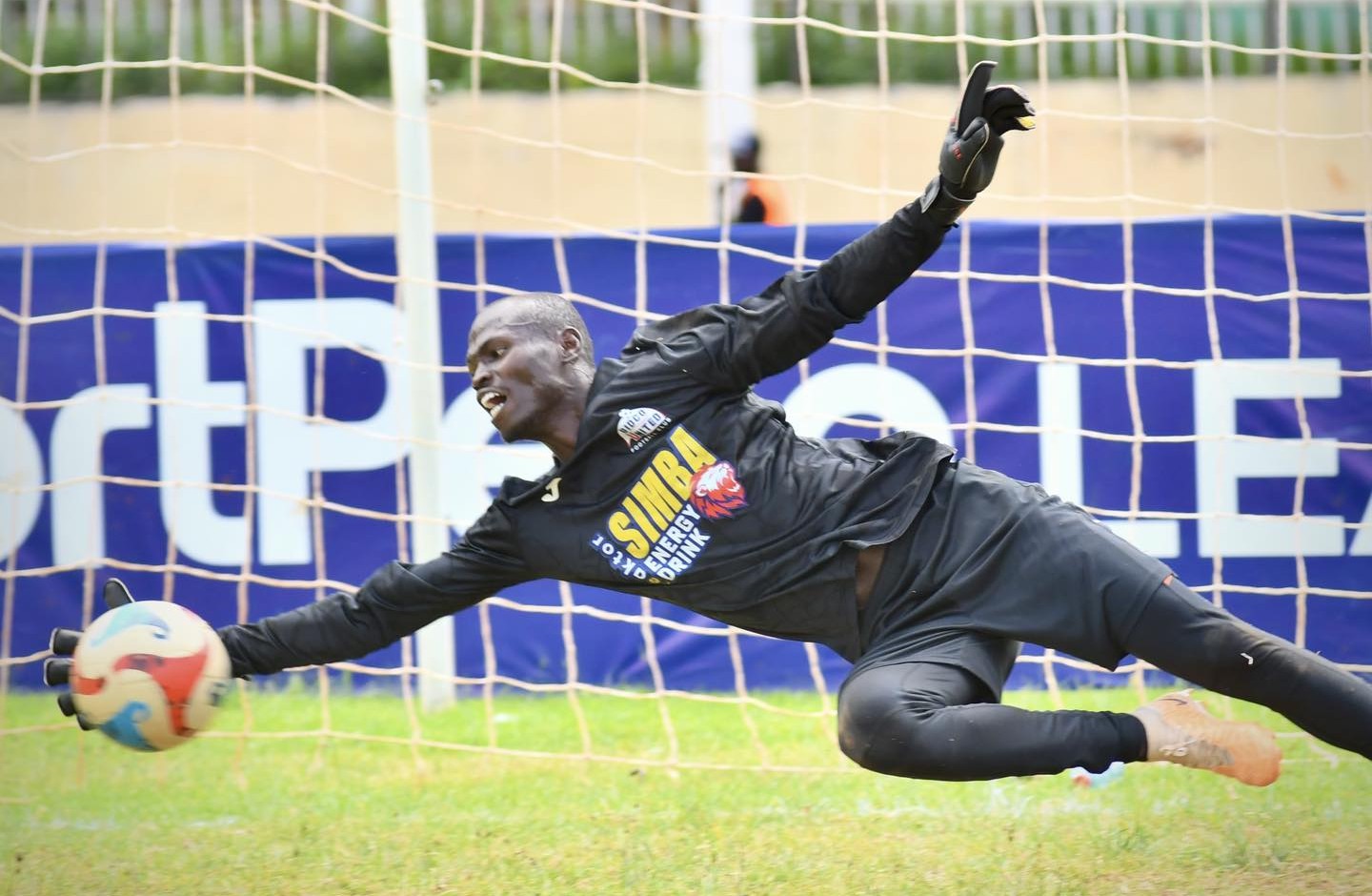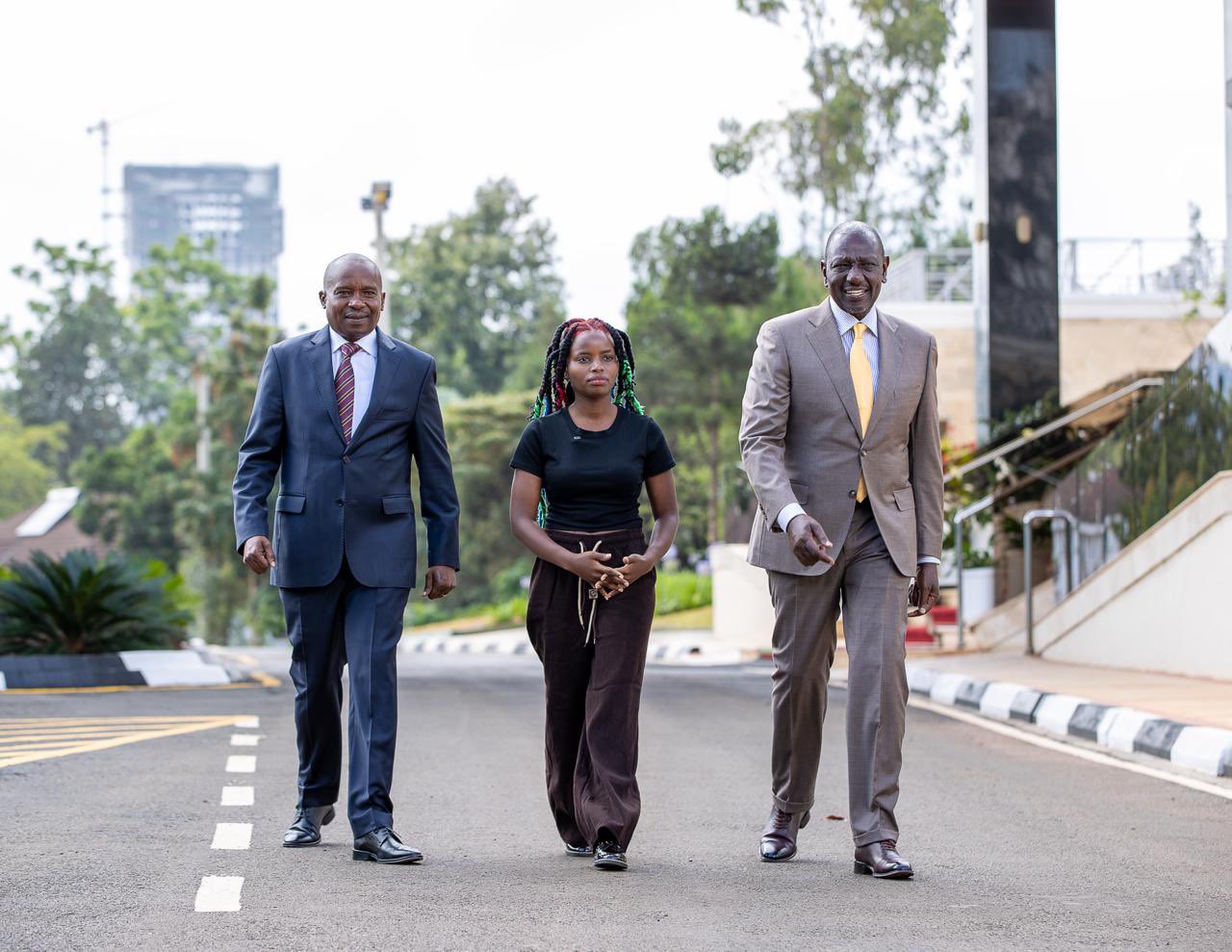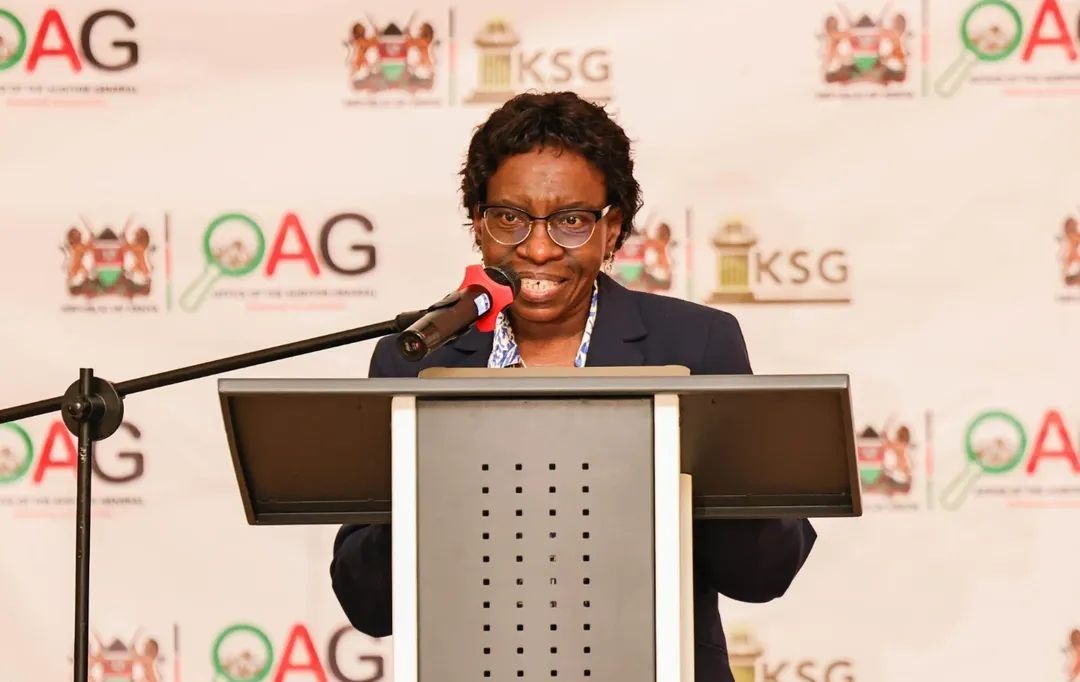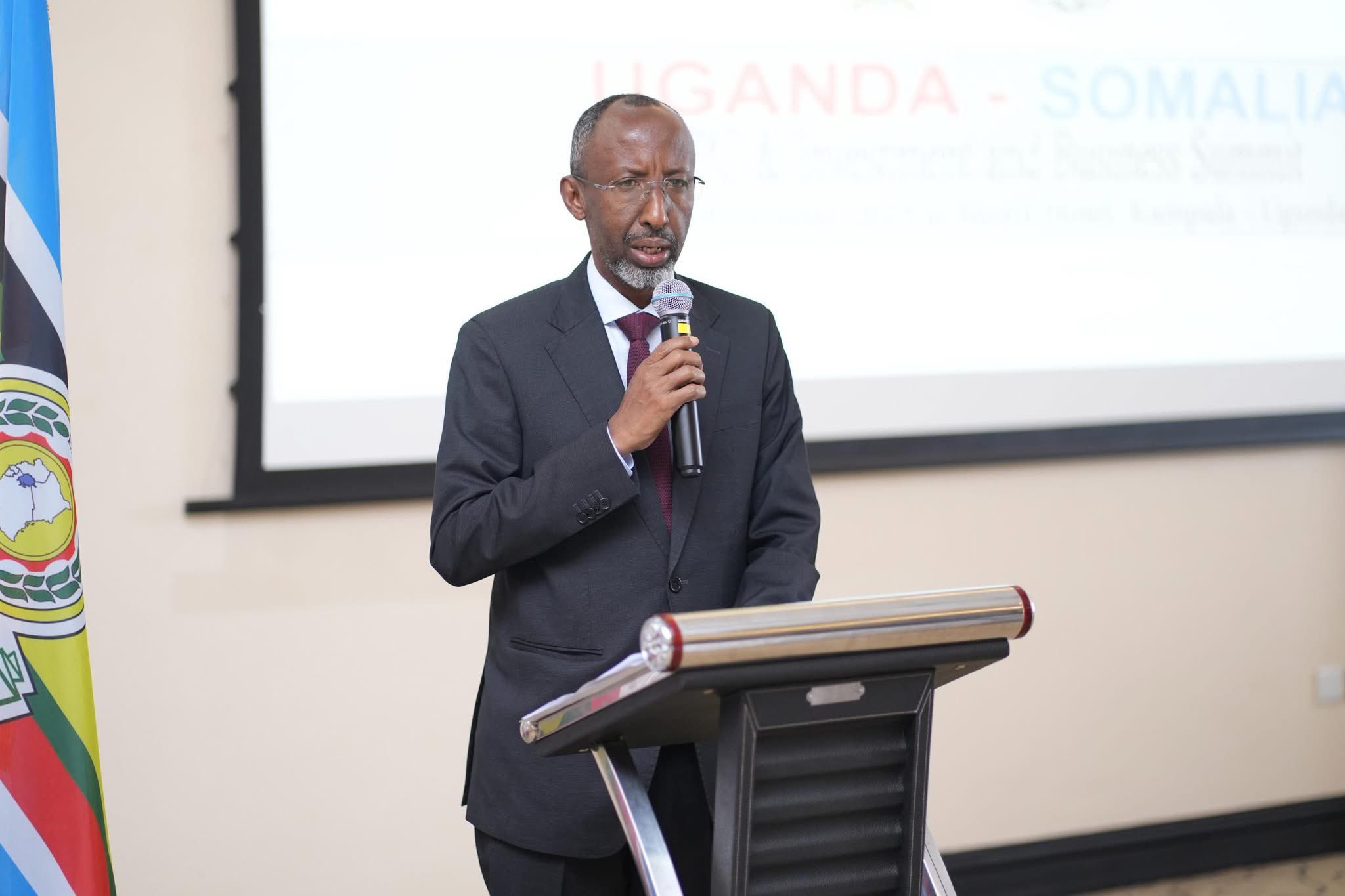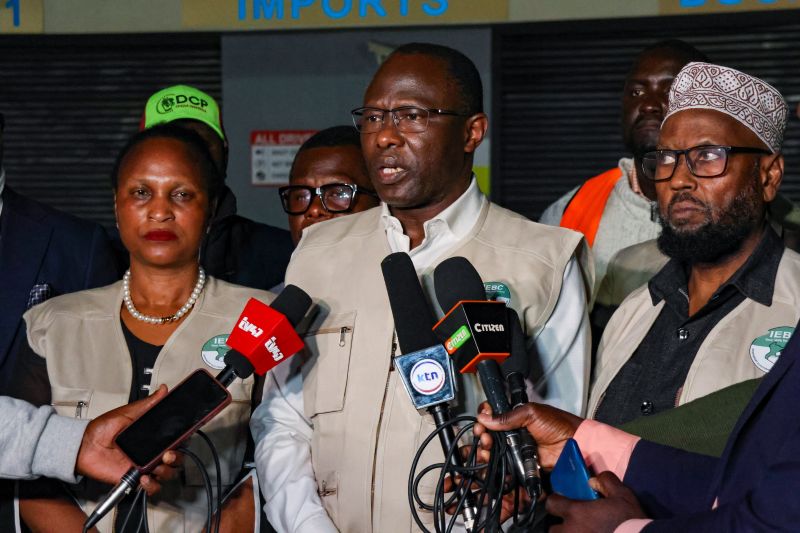Samburu village in Kwale welcomes new water project with relief
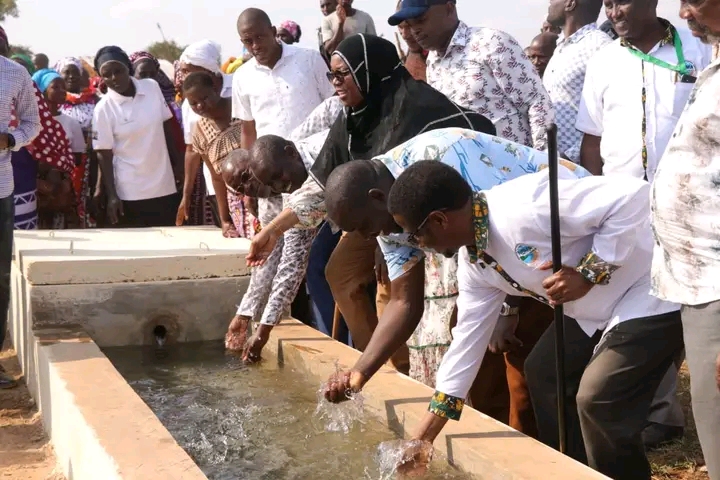
Kwale Governor Fatuma Achani highlighted the importance of collaborative efforts in enhancing essential services.
Residents of Dzoyagenu village in Samburu sub-county, Kwale County, are celebrating a significant milestone following the launch of a Sh6.7 million water project by the National Drought Management Authority (NDMA) on Friday.
The initiative promises to bring much-needed relief to over 3,000 residents across three villages in the region.
More To Read
- Youth still hardest hit by new HIV infections as Kwale marks World AIDS Day
- Daua Dam, irrigation masterplan gain momentum after high-level talks in Nairobi
- Lake Victoria Fish farming booming but pollution and disease are wiping out millions: How to reduce losses
- How control of water shapes power, national security and economic stability across Africa
- Africa’s land holds the future of climate adaptation: Why COP30 can’t overlook it
- Kwale’s marginalised communities seek recognition, fair treatment
The new water project is expected to drastically reduce the distance residents need to travel for clean water, improving their quality of life and contributing to the overall development of Dzoyagenu and its neighbouring villages.
For years, the locals have been trekking long distances to access clean water.
Speaking at the project launch on Friday, Kwale Governor Fatuma Achani highlighted the importance of collaborative efforts in enhancing essential services.
"We will work together with various stakeholders to ensure that vital services, like water, are brought closer to the communities that need them most," Achani affirmed.
National Drought Management Authority Chief Executive Officer Hared Hassan added that the authority was committed to improving the lives of communities facing water scarcity.
"Our goal is to alleviate the hardships experienced by the residents of Dzoyagenu and the surrounding villages. Access to clean water is fundamental to their well-being and development," Hassan remarked.
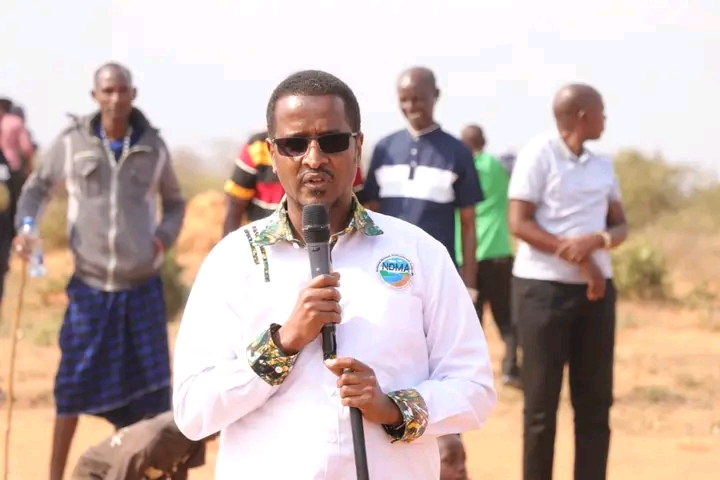 National Drought Management Authority (NDMA) Chief Executive Officer Hared Hassan, addresses locals at Samburu, Kwale County on Friday, July 26, 2024, after the launch of Sh6.7 million water project. (Photo: Mishi Gongo)
National Drought Management Authority (NDMA) Chief Executive Officer Hared Hassan, addresses locals at Samburu, Kwale County on Friday, July 26, 2024, after the launch of Sh6.7 million water project. (Photo: Mishi Gongo)National Drought Management Authority (NDMA) Chief Executive Officer Hared Hassan, addresses locals at Samburu, Kwale County on Friday, July 26, 2024, after the launch of Sh6.7 million water project. (Photo: Mishi Gongo)
Residents praised the project, noting that it will alleviate the water shortage issues that the region has faced in previous years.
Tambu Ngao, a resident of Dzoyagenu, says that women and girls from the village had to walk over seven kilometres, which translates to more than three hours, to fetch water.
The long distance not only consumes time but also exposes them to dangers such as attacks from wild animals.
Ngao expressed profound relief and optimism about the new water project.
"The launch of the water project is a game-changer for our community. It will significantly ease the burden on our women and ensure they are safer," he noted.
Another resident, Mwachuva Vunga, mentioned that the project will allow girls to dedicate more time to their studies.
Other Topics To Read
"Our girls did not have time to study. Before the project was launched, the girls headed out to fetch water immediately after they returned from school in the evening, and by the time they were done, they were too tired to study," he explained.
Maria Chuphi stated that some of the teenage pregnancies were due to the long distances they had to travel to fetch water.
"The paths to the water sources are narrow and bushy. Some boys take advantage of this to engage young girls in premarital activities," she said.
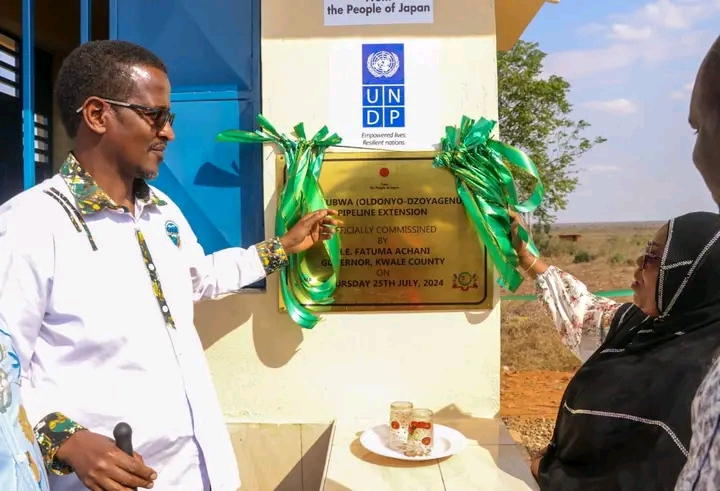 Kwale Governor Fatuma Achani, National Drought Management Authority (NDMA) Chief Executive Officer Hared Hassan, commission the Oldonyo-Dzoyagenu pipeline extension in Samburu sub county, Kwale County, on Friday, July 26, 2024. (Photo: Mishi Gongo)
Kwale Governor Fatuma Achani, National Drought Management Authority (NDMA) Chief Executive Officer Hared Hassan, commission the Oldonyo-Dzoyagenu pipeline extension in Samburu sub county, Kwale County, on Friday, July 26, 2024. (Photo: Mishi Gongo)
Top Stories Today
Reader Comments
Trending
